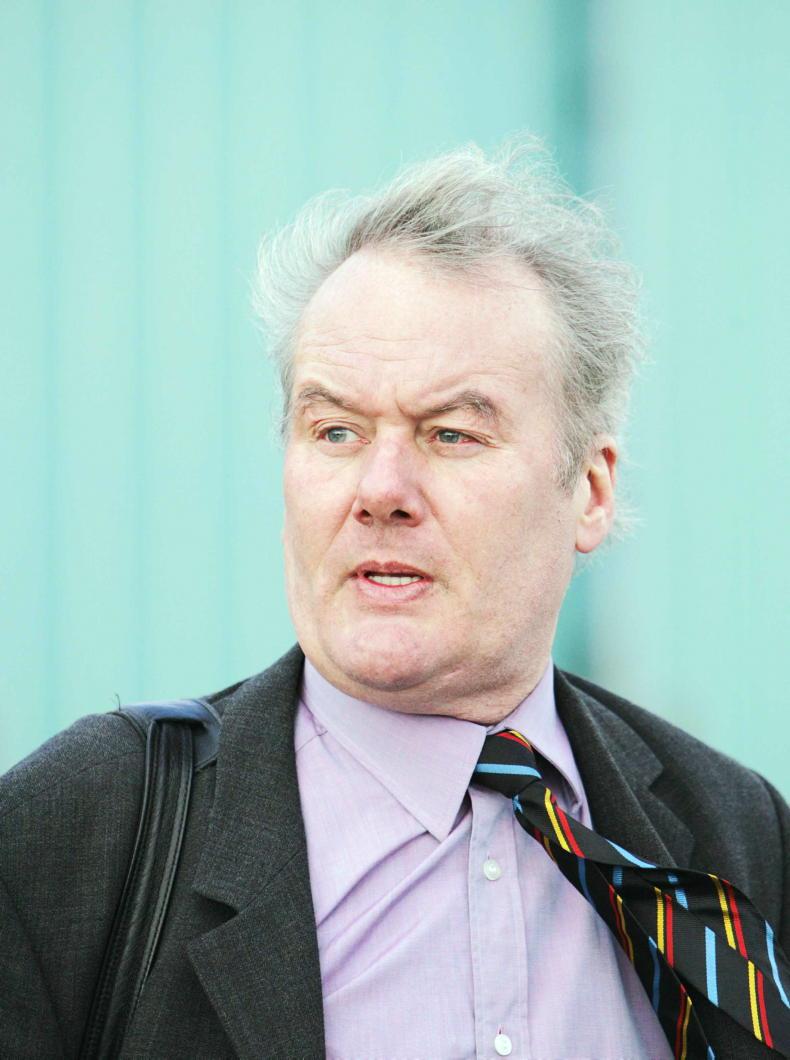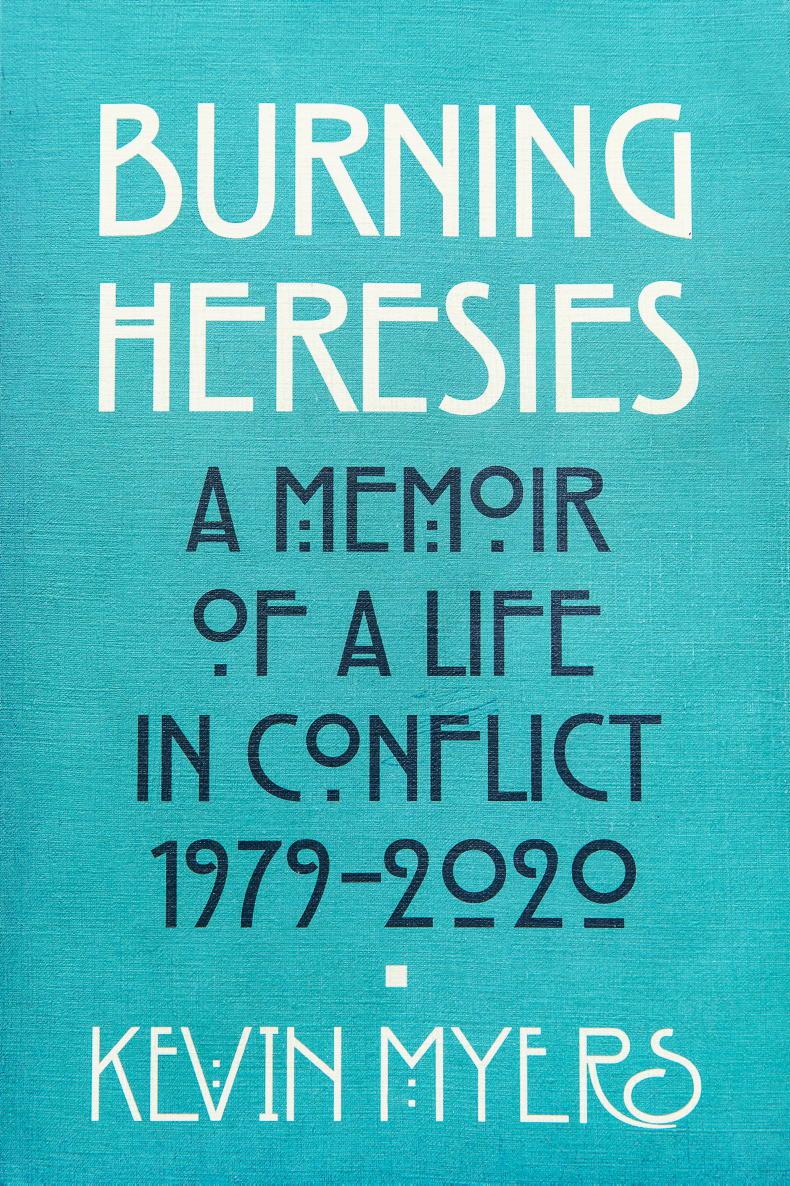Kevin Myers was almost a national celebrity with a widely read and usually acclaimed column in The Irish Times as well as well as his own highbrow television programme; a general knowledge contest between the cream of the country’s university students.
He was also a special guest speaker at the annual remembrance Sunday ceremony in Dublin’s St Patrick Cathedral with President Michael D Higgins among the high-profile guests.
On top of that, he was a widely praised war correspondent risking his life during the horrific wars in Lebanon and the former Yugoslavia.

Kevin Myers. \ Eamonn Farrell/Photocall Ireland
His book, Burning Heresies – A Memoir of a Life in Conflict, 1979-2020, captures in wrenching detail the savagery and human suffering of unrestrained civil strife. So what has gone wrong with a life that seemed so full of activity and public admiration? What has led to apparently a boycott and the marginalisation of such a talented individual? I read the book closely with a mixture of admiration and horror.
Admiration at the writing skill, the acute powers of observation and humour and the sheer bravery that shines through the unforgettable scenes of savage wars. 
But this admiration was matched by a horror at the searing honesty of his observations and his self-deprecating accounts of his own alcohol fuelled encounters with people as varied as Queen Elizabeth to his charming hosts during a cringing visit to Japan. But it is in his comments about his former employers in
The Irish Times and latterly in
The Irish Independent, which reflected his expressed views at the time, which struck me as unwise to put it at its mildest if personal advancement or even survival in the industry was his aim. His statements about his former editor, Douglas Gageby, which include allegations of shielding Charles Haughey from all scrutiny are hair raising. A scrutiny which, with the benefit of hindsight, was both warranted and necessary and lacking.
A controversial approach
It is his outspoken columns with a total disregard for political correctness for which he is best remembered in some quarters, in others it is fearless prodding of the national conscience into acknowledging and remembering the thousands of Irish men that had fought so valiantly during World War I. He was primarily responsible for the rehabilitation of their reputation and the reclamation of the magnificent memorial garden dedicated to their memory at Islandbridge – just beside Heuston Station. But the outspoken naivety expressed in some of his columns made people nervous of employing him or it seems from the book of even associating with him at official functions. It is clear from reading the book that he is deeply hurt by being excluded from the mainstream of Irish life and also it is clear financially, he is badly affected. It is certain in my view that his editors gave him too free a rein to express what many would regard as intemperate views. Those who employ talented creative people should always remember that “genius to madness is close allied and thin partitions doth their bounds divide”.
This book by Kevin Myers is a compulsive gripping read, published at his own expense. It holds an uncomfortable mirror to aspects of Irish society.
It is published by Merrion Press, 10 Georges Street, Newbridge, Co Kildare. Price €19.95
Kevin Myers was almost a national celebrity with a widely read and usually acclaimed column in The Irish Times as well as well as his own highbrow television programme; a general knowledge contest between the cream of the country’s university students.
He was also a special guest speaker at the annual remembrance Sunday ceremony in Dublin’s St Patrick Cathedral with President Michael D Higgins among the high-profile guests.
On top of that, he was a widely praised war correspondent risking his life during the horrific wars in Lebanon and the former Yugoslavia.

Kevin Myers. \ Eamonn Farrell/Photocall Ireland
His book, Burning Heresies – A Memoir of a Life in Conflict, 1979-2020, captures in wrenching detail the savagery and human suffering of unrestrained civil strife. So what has gone wrong with a life that seemed so full of activity and public admiration? What has led to apparently a boycott and the marginalisation of such a talented individual? I read the book closely with a mixture of admiration and horror.
Admiration at the writing skill, the acute powers of observation and humour and the sheer bravery that shines through the unforgettable scenes of savage wars. 
But this admiration was matched by a horror at the searing honesty of his observations and his self-deprecating accounts of his own alcohol fuelled encounters with people as varied as Queen Elizabeth to his charming hosts during a cringing visit to Japan. But it is in his comments about his former employers in
The Irish Times and latterly in
The Irish Independent, which reflected his expressed views at the time, which struck me as unwise to put it at its mildest if personal advancement or even survival in the industry was his aim. His statements about his former editor, Douglas Gageby, which include allegations of shielding Charles Haughey from all scrutiny are hair raising. A scrutiny which, with the benefit of hindsight, was both warranted and necessary and lacking.
A controversial approach
It is his outspoken columns with a total disregard for political correctness for which he is best remembered in some quarters, in others it is fearless prodding of the national conscience into acknowledging and remembering the thousands of Irish men that had fought so valiantly during World War I. He was primarily responsible for the rehabilitation of their reputation and the reclamation of the magnificent memorial garden dedicated to their memory at Islandbridge – just beside Heuston Station. But the outspoken naivety expressed in some of his columns made people nervous of employing him or it seems from the book of even associating with him at official functions. It is clear from reading the book that he is deeply hurt by being excluded from the mainstream of Irish life and also it is clear financially, he is badly affected. It is certain in my view that his editors gave him too free a rein to express what many would regard as intemperate views. Those who employ talented creative people should always remember that “genius to madness is close allied and thin partitions doth their bounds divide”.
This book by Kevin Myers is a compulsive gripping read, published at his own expense. It holds an uncomfortable mirror to aspects of Irish society.
It is published by Merrion Press, 10 Georges Street, Newbridge, Co Kildare. Price €19.95








 This is a subscriber-only article
This is a subscriber-only article









SHARING OPTIONS: